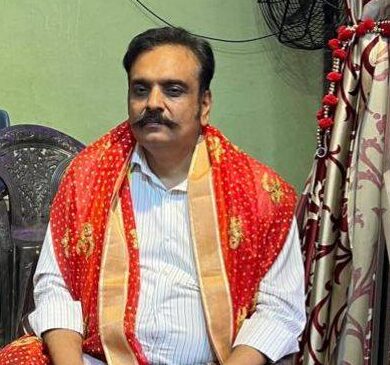Kunwar Vijay Pratap Singh, the Aam Aadmi Party (AAP) MLA from Amritsar North and a former Indian Police Service (IPS) officer, has publicly criticized his government for its failure to curb the illicit liquor mafia, spotlighting the recent hooch tragedy in Amritsar’s Majitha area that claimed 27 lives.
A 1998-batch IPS officer who resigned as Inspector General in 2021 to join AAP, Singh’s outspoken dissent on May 15, 2025, has exposed cracks within the ruling party, accusing it of shielding a police-liquor mafia nexus. Visiting Bhangali village, Singh dismissed the suspension of lower-rung officers as an “eyewash,” demanding accountability up to the Deputy Inspector General (DIG) level. His bold stance, rooted in his past investigations into Punjab’s 2015 sacrilege cases, underscores his reputation as a principled critic, even within his party.
The Majitha tragedy, reported on May 13, 2025, saw 27 daily wagers die and 10 others hospitalized after consuming spurious liquor laced with methanol, a toxic industrial chemical. The deaths spanned seven villages—Marari Kalan, Patalpuri, Threwal, Bhangali Kalan, Talwandi Khumman, Karnala, and Bhangwan. Punjab Police arrested 10 individuals, including kingpin Sahib Singh, who procured 50 liters of methanol online from Ludhiana’s Sahil Chemicals and Delhi-based suppliers Ravinder and Rishabh Jain. The methanol was diluted to produce 120 liters of deadly liquor sold in 150 ml pouches for ₹30 and 250 ml for ₹50. Two officers, Deputy Superintendent of Police Amolak Singh and Station House Officer Avtar Singh, were suspended for negligence, with cases filed under the Bharatiya Nyaya Sanhita and the Excise Act.
Punjab’s hooch tragedies reveal a grim pattern. Since 2020, 176 deaths have been linked to methanol-based illicit liquor. In August 2020, during the COVID-19 lockdown, 135 people died across Tarn Taran, Amritsar, and Batala, one of India’s worst hooch incidents. In March 2024, 20 perished in Sangrur, Chief Minister Bhagwant Mann’s home district. These recurring tragedies highlight systemic failures, with successive governments failing to regulate methanol diversion or implement a proposed Punjab Police wing to curb bootlegging, as recommended after 2020. The illicit trade thrives in border districts, causing significant revenue losses to the state’s legal liquor market.
Singh’s criticism echoes his 2020 demand, when he was an opposition leader, for murder charges against then-Chief Minister Capt. Amarinder Singh, after the Tarn Taran tragedy. Now, he challenges Mann to “walk the talk,” alleging the liquor mafia runs the government.” He plans to urge the Punjab Assembly Speaker to call a special session to expose the mafia’s roots. Opposition leaders, including Congress’s Partap Singh Bajwa and Shiromani Akali Dal’s Bikram Singh Majithia, have amplified the attack, demanding Mann and Excise Minister Harpal Singh Cheema’s resignations, citing the failure of AAP’s “Yudh Nashain Virudh” anti-drug campaign.
The tragedy’s human toll is stark. Victims like Romy, a 38-year-old father of three, and Kaka, a 26-year-old driver, left their families destitute. Mann announced ₹10 lakh compensation per deceased family, but Singh’s dissent signals deeper governance issues. As Punjab grapples with this crisis, Singh’s call for accountability tests AAP’s commitment to reform.

